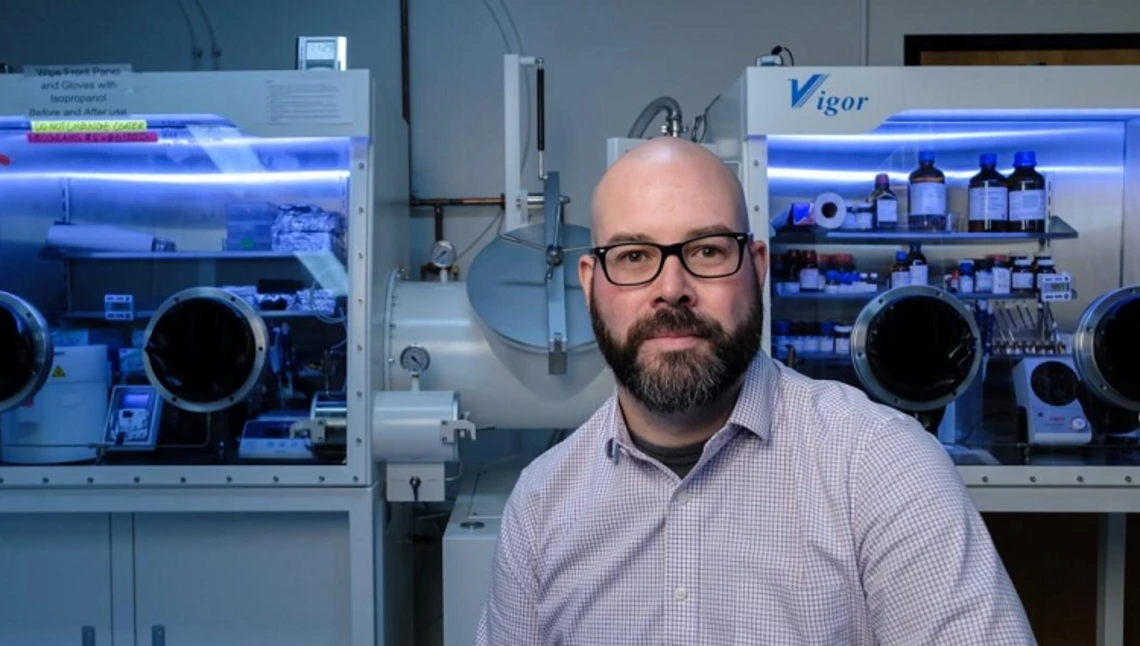Printz Wins National Science Foundation CAREER Award

With a prestigious award from the National Science Foundation, CHEE assistant professor Adam Printz aims to strengthen the solar energy field. The $500,000 CAREER Award will assist Printz in understanding why super efficient "perovskite photovoltaics" suffer from a certain instability that has prevented their widespread use in the industry.
Solar energy is set to play a key role in the United States reaching its goal of a net zero emissions economy by 2050. In addition to conventional solar panels, which are made predominately of silicon and cadmium telluride, perovskite photovoltaics are likely to be part of the solution.
“Perovskite-based photovoltaics are exciting because they can be printed like newspapers and only require a small fraction of the material used in traditional photovoltaic technologies,” Printz said. “Less material usage reduces costs and waste, meaning that long-term, perovskite-based photovoltaics are an attractive replacement for current technologies.”
One known way to mitigate these defects, even though their behaviors are not fully understood, is to incorporate organic materials called additives into the perovskite films.
“Additives basically address defects and remove them from the equation,” Printz said. “We’re going to try to use these additives not just to attack defects, but also to allow the strain to be modulated in the perovskite material, so we can potentially pull the atoms apart or push them together and get different properties and stability.”
Printz’s CAREER project also includes several student-focused elements, in collaboration with programs like Arizona Science, Engineering and Math Scholars. First, he and his team plan to launch a series of seminars to help marginalized students develop research readiness. In tandem, they will create a series of videos called “Scientists Like Me,” in which scientists from a range of backgrounds will speak about scientific and societal topics.
“With this format, we intend to both humanize the scientists and inspire students, allowing them to envision themselves as future scientists,” Printz said.
